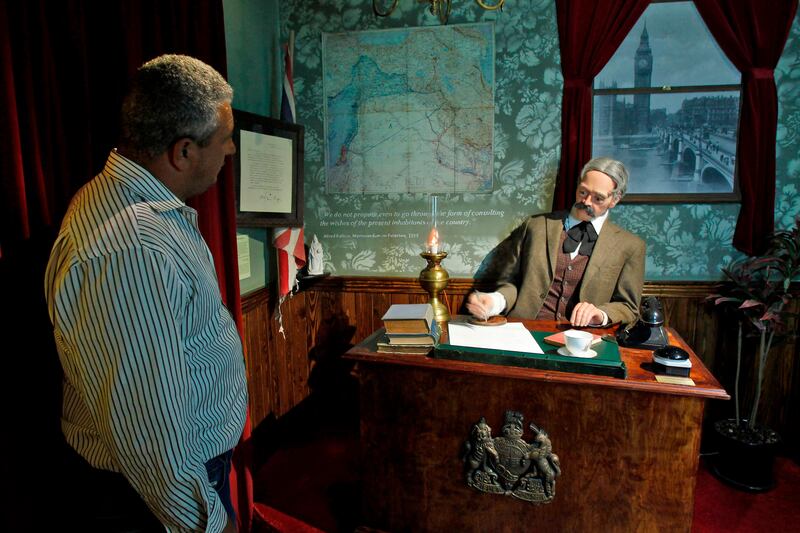When the British foreign secretary handed over what would thereafter be known as the Balfour Declaration to Zionist leader Lord Rothschild, he could not have guessed at the ramifications of those 67 words on the Middle East, or that they would persist a century later.
As the centenary of the Declaration approaches on November 2, British parliamentarians from different parties signed a redrafted version of the document, which urges the British government to recognise the state of Palestine on the basis of the pre-June 1967 lines.
“The centenary of the Balfour Declaration is the time to reconcile peace with justice for both Israelis and Palestinians, consistent with the principle Britain claims as her own: equal rights for all under law,” the statement begins.
At the launch of the new Centenary Declaration document, signatory and Labour member of parliament Richard Burden said the original document had left “unfinished business” and had failed to protect the existing rights of Palestinians.
“There were two promises in Balfour. One was to voice British support for a national home for the Jewish people in Palestine,” Mr Burden said. “The second was a commitment that nothing would be done that would prejudice the existing civil and religious rights of non-Jewish communities in Palestine, in other words the people of Palestine. That promise has never, ever been fulfilled.”
________________
Read more:
[ Balfour Declaration: how Britain broke its feeble promise to Palestinians ]
[ British activists walk to Palestine in protest at Balfour Declaration ]
[ UK celebrations 'highlight government role in denying Palestinians statehood' ]
________________
Mr Burden is one of 66 politicians, diplomats and people of standing to have signed the new declaration alongside Conservative Peer Lord Cope, who is married to a Palestinian.
“The time has come to recognise Palestine — that is why I’ve signed this declaration,” Lord Cope explained.
On Tuesday evening, 1,000 people gathered in Westminster to hear the new version of the document in an event, organised by the Balfour Project, designed to mark but not to celebrate the 100-year anniversary of the declaration.
The launch comes as Britain’s foreign secretary Boris Johnson echoed Prime Minister Theresa May’s comments last week, which appeared to defend the original Balfour Declaration.
Mr Johnson said on Monday that he was “proud of Britain’s part in creating Israel”, while Mrs May said she would be “marking the centenary with pride” in the House of Commons last week, ahead of a dinner with Israeli prime minister Benjamin Netanyahu in London to commemorate the centenary.
Balfour Centenary Declaration signatory and Labour MP Andy Slaughter said the government appeared to be contradicting itself on whether the centenary was a moment of celebration or not.
“I think it’s worrying as a trend, that all the formal pronouncements and statements the government has made on Balfour, they’ve been very careful in their language and in particular not to use the word celebrating,” Mr Slaughter said.
“But then the foreign secretary said he was celebrating the Balfour Declaration yesterday. That either shows that he’s not keeping to his brief or he’s putting forward a view of his own.”







